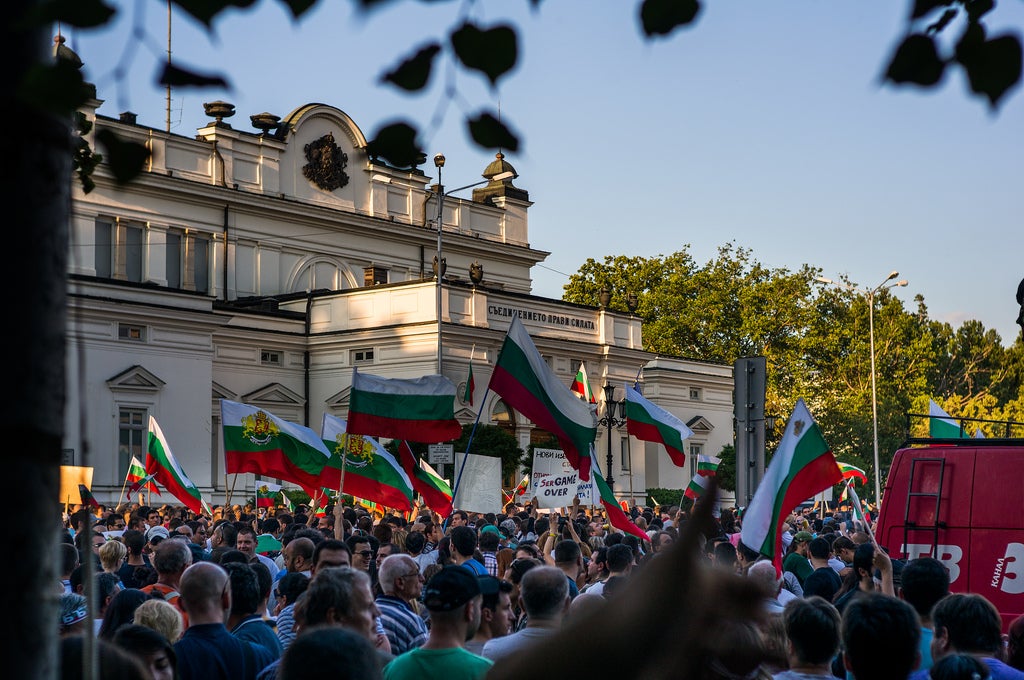Bulgarian universities in chaos as students occupy 15 campuses in anti-government protest
Occupations are part of wider movement against centre-left government

Your support helps us to tell the story
From reproductive rights to climate change to Big Tech, The Independent is on the ground when the story is developing. Whether it's investigating the financials of Elon Musk's pro-Trump PAC or producing our latest documentary, 'The A Word', which shines a light on the American women fighting for reproductive rights, we know how important it is to parse out the facts from the messaging.
At such a critical moment in US history, we need reporters on the ground. Your donation allows us to keep sending journalists to speak to both sides of the story.
The Independent is trusted by Americans across the entire political spectrum. And unlike many other quality news outlets, we choose not to lock Americans out of our reporting and analysis with paywalls. We believe quality journalism should be available to everyone, paid for by those who can afford it.
Your support makes all the difference.Thousands of students in Bulgaria have brought universities to a standstill over the past two weeks, to demand the resignation of the country’s government, which they claim is corrupt.
Students at 15 universities across the country are now occupying buildings and preventing teaching in protest at the centre-left coalition. The sudden rash of occupations have also sparked violent demonstrations, particularly in the capital, Sofia, from those supporting the protest, and from counter-campaigners.
The first of the protests began when students at the elite Sofia University occupied Lecture Hall 272, the largest teaching room in the St. Kliment Ohridski building on 23 October. They have been blockading the building since then, bringing classes to a halt, in what they are calling an “indefinite” occupation.
The original occupation quickly struck a nerve, and spiralled into universities across Bulgaria, in major cities including Plovdiv, Varna, Rousse and Bourgas.
A statement issued by the protesters claims that their “ultimate goal is for Bulgaria to become a country with governance, grounded in moral values rather than personal benefits”.
The violence is usually centred on the occupied lecture halls, several of which have seen attempted invasions and raids by ultra-nationalist supporters of the government, including, on one occasion, a Bulgarian Socialist Party MP – whose party is one of those currently in power. Counter-campaigners have also started running petitions against the protest.
Not everyone is against the protests. A demonstration of over 2,000 supporters of the occupation took place outside the University of Sofia and gridlocked the city’s traffic system on 1 November.
The demonstrators were reported to have chanted in unison for “the red trash [the government] to resign”.
Opinion polling by a number of sources in Sofia and other cities appears to suggest that around 60 per cent of students support the occupation, with 40 per cent opposed to it.
Bulgaria has had an unstable party system since the fall of communism in 1990, with no government being re-elected in the past seven elections.
The current government, headed by Bulgarian Socialist Party MP Plamen Oresharski came to power in May, after an early general election was held due to the resignation of the previous cabinet.
The Bulgarian Socialist Party finished as the second party, behind "Citizens for European Development of Bulgaria", but hold a majority via a coalition government.
Large-scale protests against the government have been taking place since June 14 due to allegations of corruption and "under the table" deals between key figures involved in the coalition."
Join our commenting forum
Join thought-provoking conversations, follow other Independent readers and see their replies
Comments